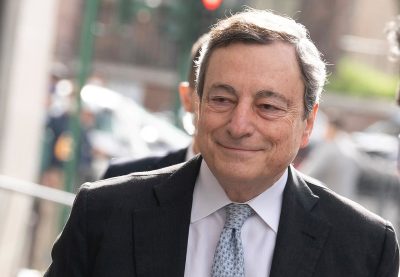Weapons and Billions for War

All Global Research articles can be read in 51 languages by activating the “Translate Website” drop down menu on the top banner of our home page (Desktop version).
To receive Global Research’s Daily Newsletter (selected articles), click here.
Visit and follow us on Instagram, Twitter and Facebook. Feel free to repost and share widely Global Research articles.
***
President Biden, receiving Italy’s PM Draghi at the White House, said,
“The thing I most appreciate about you is your effort from the beginning to bring NATO and the EU in sync in helping Ukraine.”
Well-deserved congratulations: while the U.S. Congress is allocating an additional $40 billion to arm Kiev’s forces in the war against Russia, adding to the $14 billion already allocated in March, Draghi has been working to open a similar channel of war funding in Europe through a “European Union Solidarity Trust Fund for Ukraine” and a “resilience package” worth an initial €2 billion provided to Kiev by the European Bank for Reconstruction and Development.
At the same time Mario Draghi and other G7 leaders (of which Italy is a member along with the U.S., Canada, Britain, France, Germany and Japan) allocated $24 billion to support Ukraine in its war against Russia. Draghi’s role is also important in the financing to Kiev decided by the World Bank and the International Monetary Fund, initially amounting to about $5 billion.
Thanks to this funding, in the months before and after the war the United States and its allies supplied Kiev forces with 85,000 missiles, more than 50 million rounds of ammunition of all calibers including for long-range howitzers, drones and other advanced weapons systems. Kiev forces, particularly those of the Azov Regiment and other neo-Nazi formations, are not only armed but directed by NATO.
The colossal spending on the war against Russia, which is set to increase and become permanent, is paid for by the citizens of Italy and Europe directly and indirectly by cutting social spending.
Added to this is the growing expense resulting from the EU Directive to accept and keep all Ukrainians arriving (without the need for visas) in Italy and other European countries.
*
Note to readers: Please click the share buttons above or below. Follow us on Instagram, Twitter and Facebook. Feel free to repost and share widely Global Research articles.
This article was originally published in Italian on byoblu.
Manlio Dinucci, award winning author, geopolitical analyst and geographer, Pisa, Italy. He is a Research Associate of the Centre for Research on Globalization (CRG).
Featured image is licensed under CC BY 3.0

